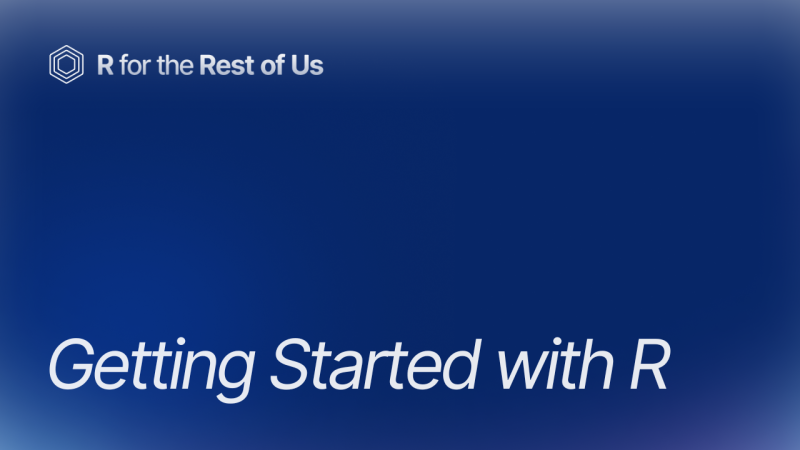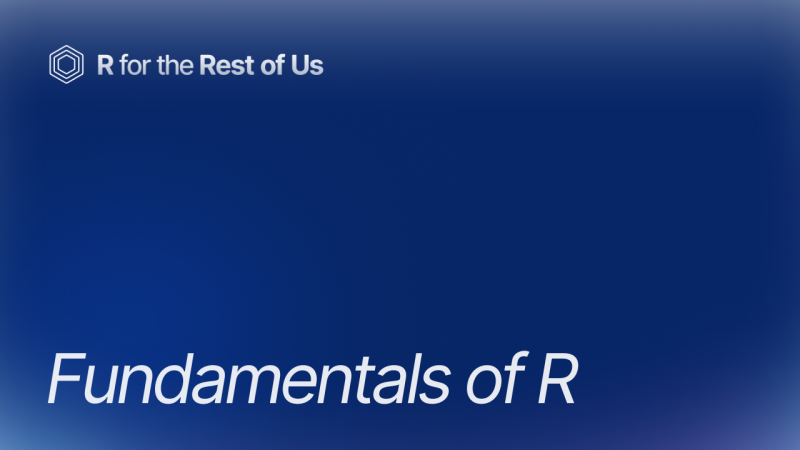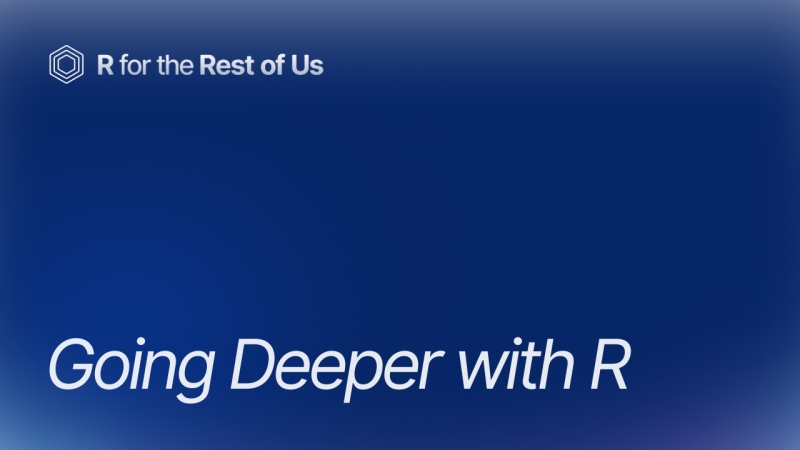Learn to use the most powerful tool for working with data.
Even if you've never coded before.

Supporting forward looking organizations




















New to R?
From "what's R?" to "I love R" in three self-paced courses.
Start here when you're just starting out.
Sign up for the newsletter
R tips and tricks straight to your inbox.
R in 3 Months
Looking for even more? R in 3 Months is a cohort-based program to help you finally learn R.
High-Quality Instruction
With R in 3 Months, you’ll get high-quality instruction that will guide you from R newbie to R expert.
Personalized Feedback
You'll work on your own code every week and get in-depth feedback.
Supportive Community
You'll be on this journey alongside a supportive community that will help you learn and keep you accountable to yourself.
Don't Take it From Us
Our learners say it best.
“This course is fantastic! I can't say enough good things about it. There were a few basic functions that I had already learned in R but I had always struggled with retaining the information because I'd never quite understood the grammar around how to piece functions together. David breaks down everything into really easy to understand and digestible chunks. I was asked to complete an assessment in R for a job interview only 2 days after finishing this course; I was able to complete the assessment and was asked to progress to the next stage of interviewing. With a lifetime access, this course is well worth the money. I would 100% recommend this course to a friend or colleague.
“Good quick overview. I'm likely to take more courses from them in the near future. The mapping course looks very interesting.
“super cool!
“I learned very much from this course, and I now have a better understanding of how to use Git and GitHub with R. Before this course, I was unsure what GitHub was really about and how to integrate GitHub into my workflow. Now I feel more confident to make it an integral part of my work in R, and I am relieved to have a much better handle on version control. I have hope that it will be a great tool for collaboration going forward.
“Fundamentals of R was an approachable, helpful course. I recommend it for anyone who's new or new-ish to R. The format is extremely helpful and the course's user interface makes things really easy.
“I think one of the biggest benefits of R in 3 Months is having continued access to all of the resources. Thanks so much for making that available to us!
“Solid intRo to R :)
“This course was very helpful and explained in full detail with great demonstration examples. I would for sure recommend this to a friend that is not familiar with the application to get started on coding with R-Studio.
“Hi! This course is just the simplest way I have found to understand R. Thanks a lot!
“I really enjoyed the "getting started" course at rfortherestofus.com. It was a perfect introductory course that really got me to a very good start. Everything was explained very simply. One other thing i liked about the course was that it gave us the same files that were used in the course making it easier to follow along.
Ready to Up Your R Game?
For when you've got the foundations down and you're ready to learn more.
Let Us Handle the R
High-quality data visualization, workflow improvements, and custom packages to enable organizations to communicate more effectively and more efficiently.
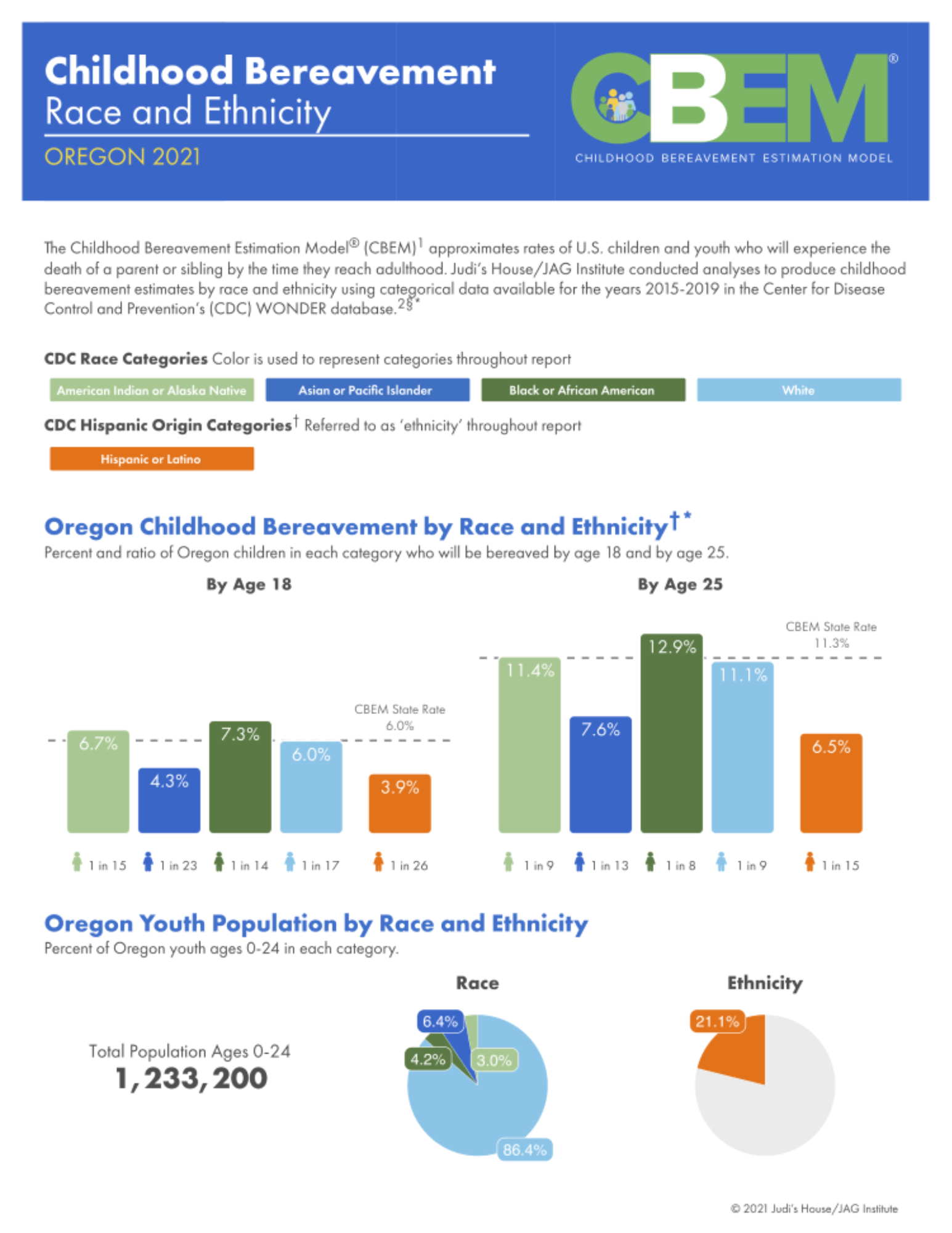
Childhood Bereavement Estimation Model Reports
Judi’s House/JAG Institute, a nonprofit in Colorado, provides support regarding childhood bereavement. In 2018, they created the Childhood Bereavement Estimation Model® (CBEM) to estimate rates of children losing a parent or sibling before adulthood. Annual CBEM reports were produced, but racial and ethnic data breakdowns were lacking until 2021. Partnering with R for the Rest of Us, they generated high-quality, easy-to-understand reports on bereavement disparities by race and ethnicity. These national and state-level reports, created using parameterized reporting and RMarkdown, help advance their vision that no child should be alone in grief.
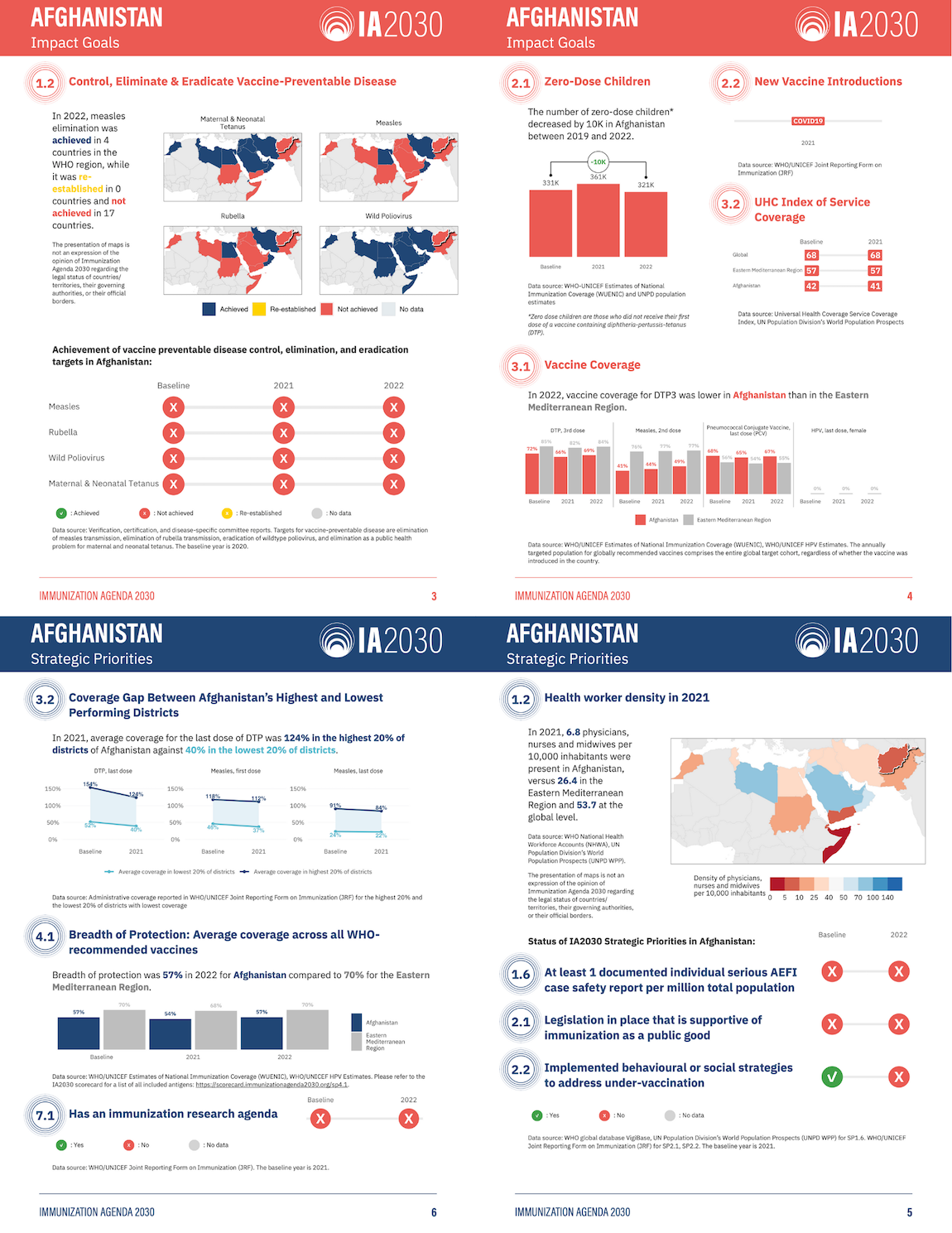
Immunization Agenda 2030 Reports
The World Health Organization's Immunization Agenda 2030 (IA2030) aims to improve global vaccine access. To better report progress, the International Vaccine Access Center at Johns Hopkins University partnered with R for the Rest of Us in 2023. They produced 72 user-friendly country-level reports in English and French, using parameterized reporting. These reports highlight individual country progress, use less technical language than previous online scorecards, and are in a printable PDF format for review.
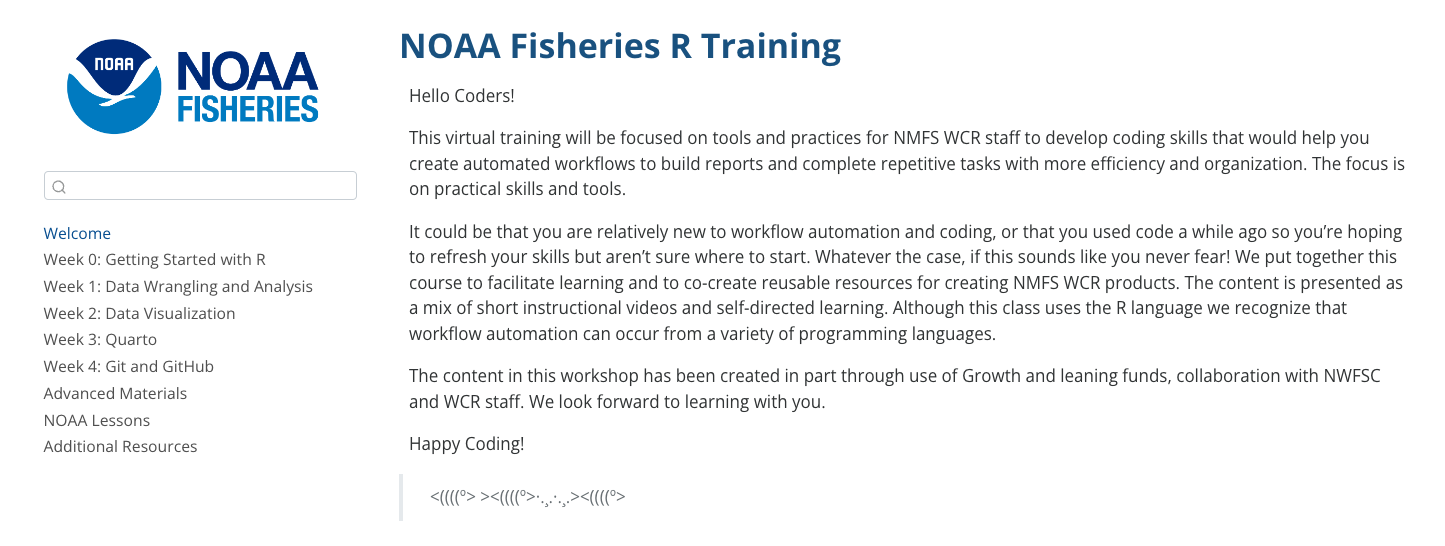
Improving R Training for NOAA Fisheries West Coast Region
Blog
Learn to use the most powerful tool for working with data.
Even if you've never coded before.

How to make heatmaps in ggplot
May 1, 2025
Heatmaps are a common way of representing data. In this blog post, I'll show you how to make your own heatmaps using ggplot. In the process, you'll learn a bit about working with the {sf} package, specifically the st_make_grid() function to make a grid, the st_intersection() function to clip the boundaries of your geography to the grid you create, and st_join() to do spatial joins. This blog post is adapted from a lesson in the Mapping with R course . If you want to learn to make heatmaps...

Use shadows in ggplot to highlight findings
April 24, 2025
In our consulting work, we make a lot of the data visualization for parameterized reporting . It’s something I spoke about in my 2024 Cascadia R Conf talk, How to Make a Thousand Plots Look Good: Data Viz Tips for Parameterized Reporting . One example I gave in this talk came from our work with the Johns Hopkins International Vaccine Access Center and the World Health Organization . In this project, we made reports for the Immunization Agenda 2030 project, which tracks the progress countries...

Create your own custom {ggplot2} theme
April 3, 2025
Creating custom themes in {ggplot2} lets you elevate your data visualizations from standard to standout. Whether you’re aiming for a polished, brand-consistent look for your organization or a unique aesthetic that reflects your personal style, a custom theme function makes it easy to apply your design to all figures with a single line of code. In this tutorial, we’ll cover: the essentials of the powerful ggplot2::theme() function, including how to adjust fonts, colors, sizing, and spacing;...
